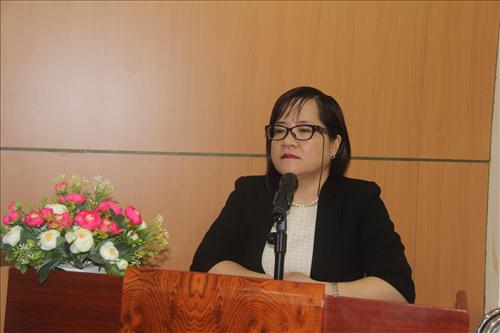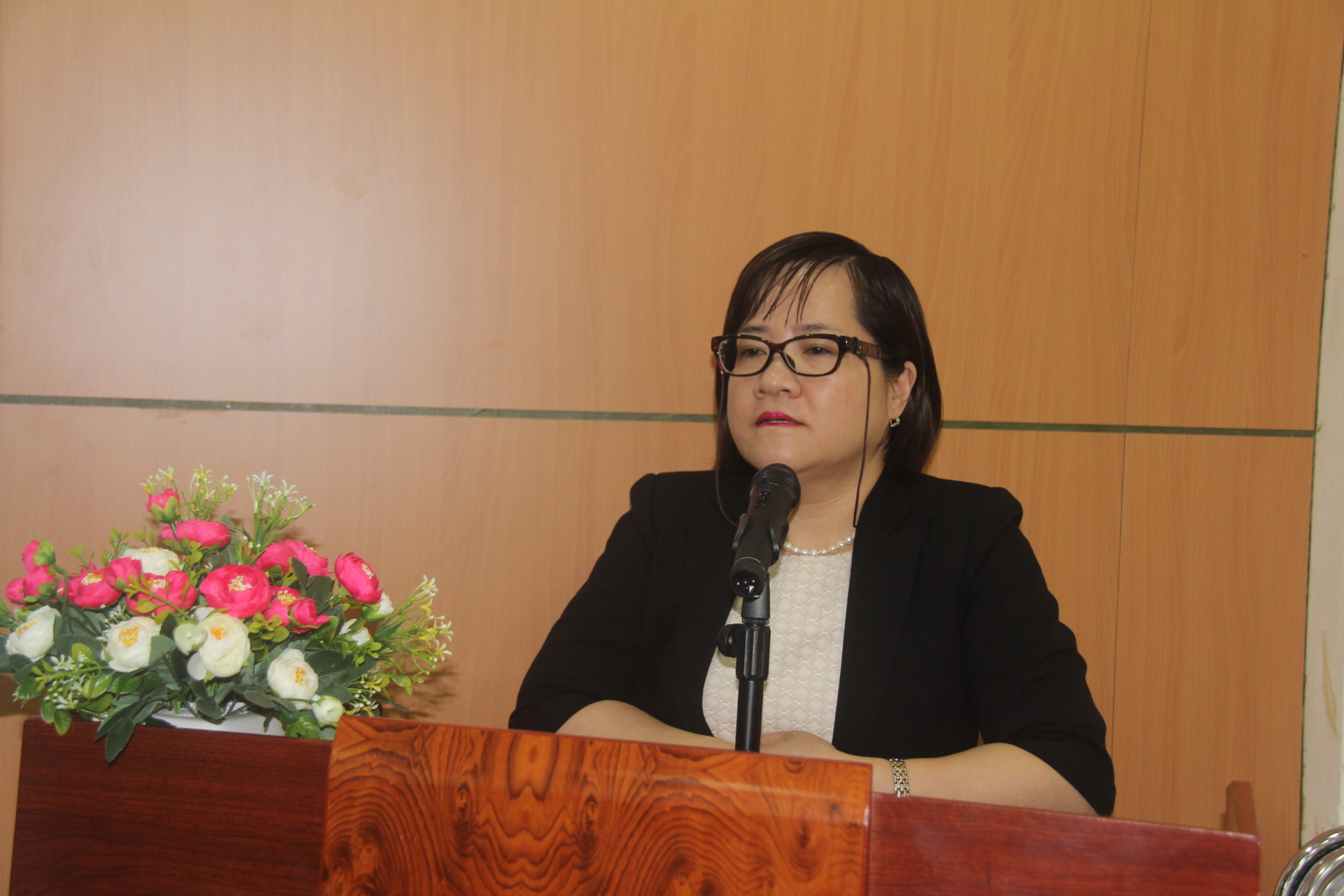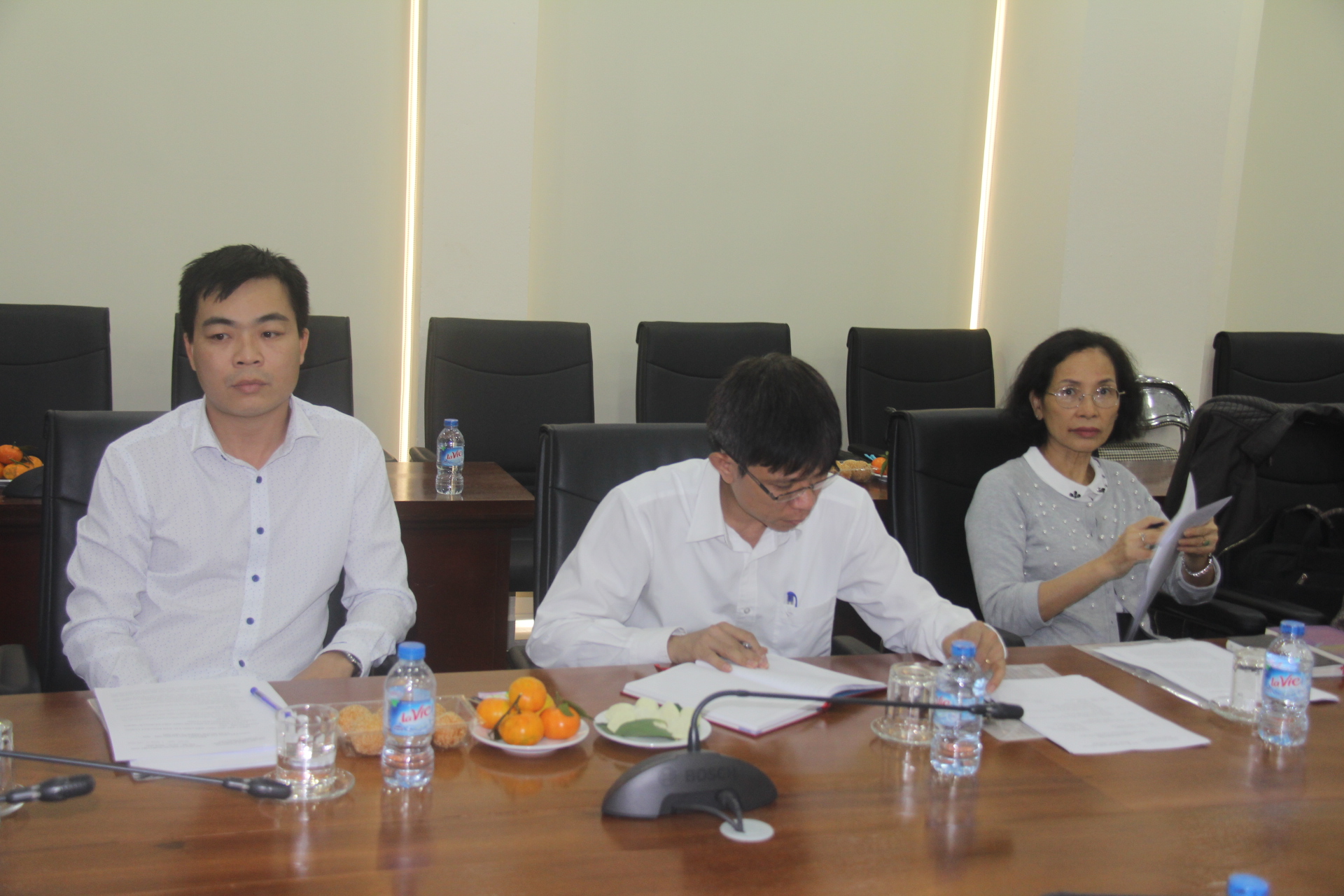
Speaking at the opening of the conference, Associate Professor, Dr. Tran Thi Minh Hoa affirmed: Since 2006, the University of Social Sciences and Humanities has been one of the first units to participate in the training quality assessment of the Ministry of Education and Training. Up to now, the University has built a system of related documents and implemented many activities related to assessment and quality assurance and moving towards building a quality culture. After 10 years of implementation, quality assurance has truly become a need of the training units in the University, an important condition for international integration and sustainable development of the University.

Associate Professor, Dr. Tran Thi Minh Hoa - Vice Principal of the School spoke at the conference

The conference listened to Dr. Nguyen Van Chieu - Deputy Director of the Training Quality Assurance Center present a report on the results achieved in the past 10 years of training quality assurance work.
Accordingly, in 2006, the University of Social Sciences and Humanities was the first university of VNU to establish the Training Quality Assurance Center. The Center is an advisory unit, assisting the President in the work of assessment, accreditation, management, assurance and improvement of training quality in all aspects of the University's activities. The Center is also a research and consulting unit on training quality assurance issues, scientific research and community service activities.
Up to now, 03 training programs of the University, including the Bachelor training program in Linguistics, Oriental Studies, and Philosophy, have been accredited according to the standards of the Association of Southeast Asian Universities (AUN). Accreditation according to the AUN standards has helped faculties and the University to adjust the training programs, improve the quality of teaching and learning, and promote regional and international integration. Being recognized as accredited according to AUN standards brings many opportunities to the University: students are the ones who benefit greatly from this assessment activity, because they study in an environment of continuous improvement and quality assurance. The AUN accreditation results are an affirmation of the training program to society about the quality of the program's output products, thus helping to increase employment opportunities for students. In the near future, participating in accreditation of training programs according to AUN standards will create conditions for students to transfer study credits between training programs of AUN member universities; create advantages for student and lecturer exchange between universities. In addition, employers have a reliable basis to seek human resources of the DBCL, from a training program with international quality references.


However, besides the remarkable results, some limitations of this work were also pointed out such as: Regarding awareness, there are still some leaders, officers and lecturers who have not fully recognized the importance of quality assurance and quality culture work at the unit; The connection and close connection between units on quality assurance work is not high; There are not many training programs that have been accredited; Quality assurance work for postgraduate training programs has not been carried out; The forms of dissemination and propaganda on building and implementing quality culture are not diverse and not very effective...
By 2020, the School aims to build a quality culture throughout the school to become a core factor in implementing training and scientific research activities, transferring knowledge, and serving the community. The quality of education in the School will be implemented according to the standards of the Ministry of Education and Training and ASEAN. The core quality indicators of the School meet the standards of advanced universities in the ASEAN region and in the world.
Regarding the quality accreditation work, by 2020, the School will continue the first quality accreditation plan for training programs according to the standards of the Ministry of Education and Training and AUN. In particular, accreditation of high-quality training programs according to AUN orientation is mandatory, moving towards quality accreditation of a number of postgraduate training programs, quality accreditation of the School according to AUN standards. Some other specific indicators such as: 100% of subjects are asked for feedback from learners; 100% of training programs are asked for feedback from learners, lecturers, managers, employers; 100% of lecturers conduct self-assessment...
At the conference, delegates also shared and proposed a number of solutions to improve the effectiveness of the quality assurance work such as: Strengthening information and propaganda work so that officials and civil servants are fully aware of the quality assurance work, creating consensus in building and developing quality culture; Closely and more decisively directing the development of plans, reviewing and evaluating the implementation of quality assurance tasks; Building accurate quality assurance plans and roadmaps and focusing on perfecting the system of guiding documents and the network of quality assurance departments in the University; Having appropriate investment policies for inspection activities, maximizing the effectiveness and significance of quality assurance work; Promoting and enhancing exchange activities, learning, and sharing experiences in implementing quality assurance work between units inside and outside VNU.
Author:Thanh Ha
Newer news
Older news